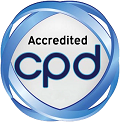Biography
Biography: Thomas Skutella
Abstract
It has been suggested that the generation of human germline stem cells from primordial germ cells (PGCs) or spermatogonial stem cells (SSCs) may provide simple and non-controversial access to an individual cell-based therapy. These human studies are based on mouse models of germ stem cell reprogramming, in which the molecular mechanisms underlying the shift to pluripotency could be investigated in more detail. However, recent studies revealed the impossibility of a conversion of adult mouse SSCs and human PGCs into a truly pluripotent state. For the conversion of PGCs it appeared to be necessary to conduct a two-factor induction of pluripotency with Oct4 and Sox2. From the CD49f MACS- and matrix-selected fractional part of enriched human adult spermatogonia, adult human germ stem cell cultures were grown. When compared to authentic pluripotent stem cells, these human adult germ stem cell (haGSC) cultures were not fully reprogrammed. For this reason, an investigation of the molecular blockages of pluripotency in germ cells is necessary. It would be deeply interesting to improve culture conditions, to apply bolting factors, such as small molecules deterring from the molecular block that hinders a full germ stem cells (GSCs) or haGSC conversion to molecular pluripotent stem cells, and to enlarge the restricted time window of SSC to pluripotent stem cell (PSC) conversion.

